New US Sanctions Hit Iran’s Oil And Petchem Sector
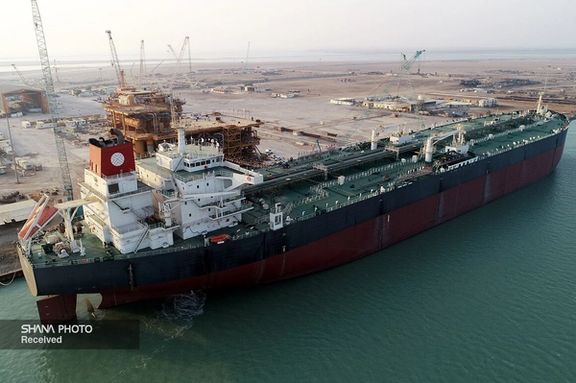
The US Treasury has issued sanctions on a new array of individuals and entities that help the Islamic Republic of Iran sell its petroleum and petrochemical products.

The US Treasury has issued sanctions on a new array of individuals and entities that help the Islamic Republic of Iran sell its petroleum and petrochemical products.
The Department of the Treasury’s Office of Foreign Assets Control (OFAC) said on Wednesday that the international network used a web of Persian Gulf-based front companies to facilitate the delivery and sale of hundreds of millions of dollars’ worth of Iranian goods from Iranian companies to East Asia.
Two UAE-based Iranian nationals, Morteza Rajabieslami and Mahdieh Sanchuli, two vessels (BS BRAVO and SUMMER 5) as well as 13 companies including Iran's Persian Gulf Star Oil Company, Jam Petrochemical Company, and several firms in UAE and Hong Kong have been added to OFAC's Specially Designated Nationals list.
“While the United States is committed to achieving an agreement with Iran that seeks a mutual return to compliance with the Joint Comprehensive Plan of Action, we will continue to use all our authorities to enforce sanctions on the sale of Iranian petroleum and petrochemicals,” said Under Secretary of the Treasury for Terrorism and Financial Intelligence Brian E. Nelson.
Secretary of State Antony Blinken also announced the new sanctions on the Iranian petroleum and petrochemical producers, transporters, and front companies in a tweet, saying that “Absent a commitment from Iran to return to the JCPOA, an outcome we continue to pursue, we will keep using our authorities to target Iran's exports of energy products.”
Some of the new sanctions were levied pursuant to Executive Order 13846, which would be lifted in case the US returns to the JCPOA, whose prospects are withering.
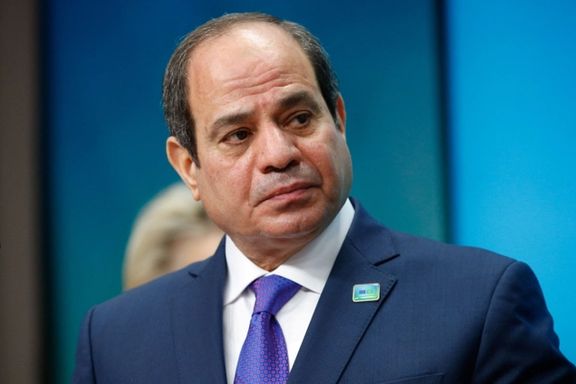
Cairo and Tehran have agreed to develop relations, according to a report by the Qatar-affiliated media outlet Al-Arabi Al-Jadeed, quoting Egyptian diplomatic sources.
According to the Wednesday report, Iranian and Egyptian officials sat for talks last week during a visit by Egyptian President Abdel Fattah el-Sisi’s to Oman.
The London-based pan-Arab daily said that the officials agreed on “gradual expansion of Tehran-Cairo relations as well as coordination on the situation in the Gaza Strip and Syria,” noting that the meeting was attended by a high-ranking figure from the delegation accompanying the Egyptian president, with Omani coordination.
The paper claimed that most of the Egyptian military leadership opposes joining any pact directed against Tehran.
The Egyptian delegation accompanying Sisi in the visit included Foreign Minister Sameh Shoukry, Chief of General Intelligence Abbas Kamel, Minister of Planning and Economic Development Hala Al-Saeed.
The sources said that the meeting was focused on security in general, adding that "there were many points of agreement between the two parties” on issues of mutual interest.
They said the Iranian and Egyptian officials also agreed to cooperate in the framework of international forums as long as that was possible in order to gradually increase the level of ties.
Late in June, Egyptian and Iranian intelligence officials also held a meeting, in which Egypt warned Iran not to target Israelis on its territory, Al-Arabi Al-Jadeed reported, without disclosing details about the location and participants of the meet.
Ties between Iran and Egypt turned hostile following the Islamic Revolution in Iran in 1979. Despite some tensions, they share membership in the Organization of Islamic Cooperation and the Developing 8.
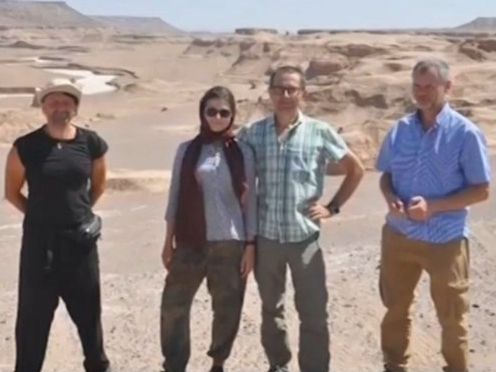
Iran has arrested several foreign nationals including the deputy head of the UK embassy in Tehran, Iran's state television reported Wednesday night.
The government media say that the Revolutionary Guard's Intelligence Organization "identified and arrested" the foreigners who were taking soil samples in the central Iranian desert, apparently in separate incidents.
Giles Whitaker, the deputy head of the United Kingdom's mission in Iran, was visiting the Shahdad desert near the Iranian city of Kerman along with his family when he was detained and expelled because of "taking samples of soil from a prohibited area", the Iranian state TV's report said.
The report said the British diplomat was visiting the restricted area during military drills by the IRGC's Aerospace Force in a region nearby, and was spotted by IRGC drones.
While the report by the state TV claims the British diplomat has been expelled "from the city" after apologizing, the IRGC-affiliated Fars News Agency says he is being expelled from the country.
The UK Foreign Office told Iran International that the "reports of the arrest of a British diplomat in Iran are completely false."
In addition to the British diplomat, several other researchers and scientists have also been arrested, according to the state TV report.
The other detainees include Maciej Walczak, a researcher at the Department of Environmental Microbiology and Biotechnology at Nicolaus Copernicus University, Marcin Switoniak, a professor in Department of Soil Science at Nicolaus Copernicus University in Toruń, and Charzynski Przemysław, another professor of Soil Sciences, the report said.
The IRGC also claims it has arrested the spouse of the Austrian cultural attaché to Tehran.
The report aired by Iran’s state TV claims Israel is sending these people to Iran in order to “steal” information from the Islamic Republic and once again open the possible military dimensions (PMD) case of Iran’s nuclear program.
Although it is not yet clear when these foreign nationals have been arrested on charges of espionage, this is the first publicly announced operation by the IRGC Intelligence after its former head Hossein Ta'eb was replaced by Mohammad Kazemi.
There have been a series of changes of top officials in IRGC intelligence in recent weeks after repeated killings and mysterious deaths of some of its officers and staff, that Iran has blamed on Israel.
These events have cast a shadow on the image the IRGC wants to project of efficiance and power to control events. The report about the arrest of a British dipolomat could be an attempt to show the IRGC is still in charge.
These are probably the latest cases of Iran arresting foreign nationals possibly to use them as hostage for leverage in its negotiations with other countries.
The announcement comes amid fierce debates over a prisoner swap treaty being reviewed by the Belgian parliament, whose opponents say it would not only result in the return of an Iranian convicted terrorist, Assadollah Assadi, from Belgium to Iran, but will embolden the regime in Tehran to further use its "hostage policy" as leverage for its malicious activities across the world.
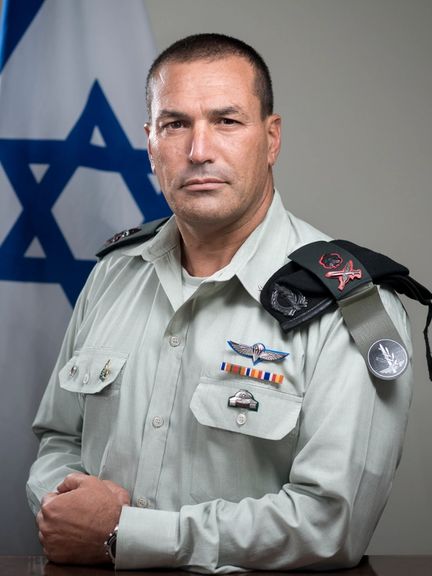
Israeli major general Eyal Zamir, who is one of the leading candidates to take over as the next chief of the military, has called for ramping up assassinations of Iranian military officials.
In a lengthy policy paper, titled ‘Countering Iran’s regional strategy,’ published on Tuesday by the Washington Institute, the candidate to replace IDF Chief of Staff Lt.-Gen. Aviv Kohavi said regional states must weaken IRGC “in every dimension and use every means possible to exert pressure on it,” because Iran’s threat is “the central threat to the national security of these nations and is the glue – the shared interest – holding the Sunni-Israeli camp together.”
“IRGC is the backbone of the regime and the main means by which it seeks to dominate the region,” he said, adding, “The IRGC is responsible for most covert activity, subversion of other governments, terrorist acts, and political assassinations in the Middle East and around the world, as well as maintaining contact with its regional and global partners,” he said.
Soleimani model targeted killings -- like the attack that killed IRGC’s Quds Force commander in 2020, targeting IRGC’s leadership, commanders and key operatives behind the planning and execution of terror attacks, as well as issuing international arrest warrants for designated individuals are among the means Zamir suggested for weakening IRGC.
“Damage the IRGC’s operational center of gravity — its long-range strike capabilities such as rockets, missiles, and drones — by covert action against manufacturing plants and missile and UAV main operating and forward bases, while preparing a plan of action to damage Iran’s defensive system,” he added.
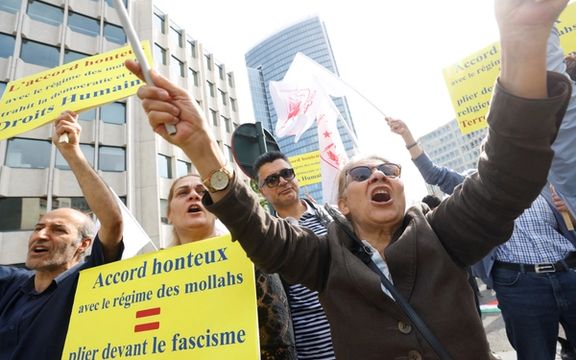
The Belgian parliament’s foreign relations committee passed a controversial prisoner swap treaty with Iran, which will go to the full 150-member chamber July 14.
Belgium’s Justice Minister Vincent Van Quickenborne said on Wednesday the treaty between Iran and Belgium stipulating the exchange of convicts is an attempt to build trust between the two countries, adding that the assessment of the Belgian security service was that the failure to pass the bill would increase security threats.
“Contrary to what you [opposition representatives] say, this treaty will not open the door to hostage-taking and will not provide immunity for criminals,” he said.
Critics say that the agreement with Iran will result in sending back Assadollah Assadi, a convicted terrorist to Tehran and that can encourage the Islamic Republic in taking more Western hostages.
In response to questions about the possibility of an exchange to secure the release of a Belgian man jailed in Iran since February and Swedish-Iranian academic Ahmadreza Djalali, he noted that the Belgian national recently detained by the Islamic Republic has not been convicted yet, therefore the prisoner swap treaty would not apply to him, but Djalali has been sentenced to death and this treaty can help Brussels in that regard.
Van Quickenborne Tuesday confirmed Tuesday that Iran has been holding a Belgian man for the past four months under “espionage” charges, saying his detention is illegal.
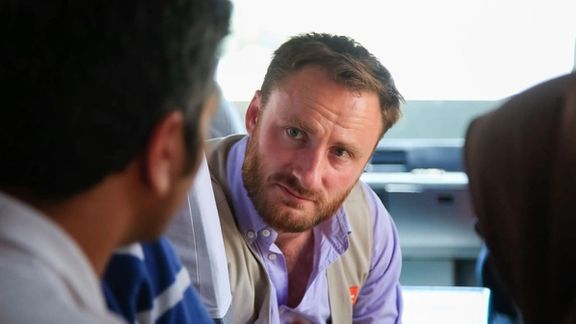
On Monday, Iran International broke the news that Tehran has detained a Belgian aid worker, identified as Olivier Vandecasteele, another example of the often-used Iranian tactic of imprisoning foreigners as hostages to exchange them with certain Iranians jailed in Western countries.
But Iran arrested the 41-year-old aid worker just when it was negotiating the treaty in question and shows its lack of good will.
In the past years, 49 European citizens have been arrested in Iran. Eighteen of them are still in prison, including the Belgian citizens. Two of them have been killed: one has been executed and one died due to lack of medical access, Van Quickenborne claimed on Wednesday.
He said Belgium cannot submit to the request of a few American congresspeople while the United States negotiates and deals with Iran for the release and exchange of prisoners.
On Tuesday, 13 members of the US House of Representatives wrote to Prime Minister Alexander De Croo, urging Brussels to reject any deal with the Islamic Republic that would repatriate Assadi.
“We applaud the heroism and ingenuity of the Belgian government, first, in preventing a heinous tragedy, and subsequently, in holding to account the reprehensible perpetrators of this dastardly plot executed under the cover of diplomatic immunity -- as a testament to the rule of law and a commitment to ridding the world of the scourge of terrorism. Therefore, we implore you to uphold these precious principles and reject any cynical ploy by Iran’s current 'diplomats' to trade terrorists for dubiously detained Belgians,” their statement read.
The chairman of US Senate Foreign Relations Committee also tweeted on Tuesday that the Belgium-Iran treaty “must uphold Belgium’s international obligations and cannot grant impunity to Assadollah Assadi or any other actor responsible for human rights violations and heinous acts of terrorism.”
“Iran must be held to account for backing terrorism and taking hostages for leverage,” Senator Bob Menendez added.
Numerous people and groups from around the world have warned about the imminent perilous consequences of the prisoner exchange treaty, calling it “the green light to state terrorism” that only emboldens the Islamic Republic.
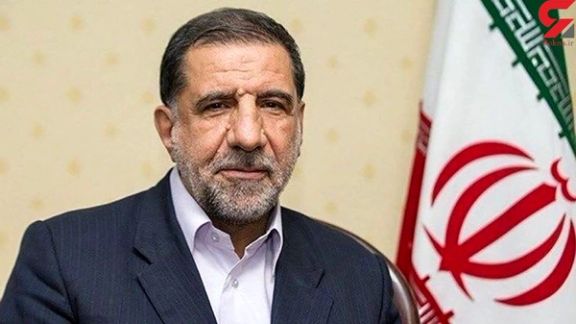
An Iranian lawmaker confirmed on Tuesday that the explosions at one of the Revolutionary Guard’s bases in southeast Tehran on July 1 was sabotage.
Tehran’s representative at the parliament Mohammad Esmail Kosari -- who is a former commander of the IRGC’s Sarallah (Sar-Allah) Headquarters tasked with the capital’s security – tried to make the incident look unimportant in his remarks, saying the blasts were the result of “two very weak improvised explosive devices.”
Kosari did not mention possible injuries and casualties in the explosions, and Iranian official media and websites affiliated with the Revolutionary Guard have remained silent on the incident.
In a statement, the exiled Iranian opposition group Mujahedin-e Khalq Organization (MEK) claimed the attack was carried out by “revolutionary cells”, a term it often uses to characterize anti-regime acts and protests in Iran.
"They [the MEK] use their local agents with promises. Anyway, it was Friday, which is a day off, they came at 9:00 p.m., made use of the darkness, carried out the act and took a video."
Videos surfaced on social media on Friday night showing fire and smoke billowing from the Malek Ashtar base of Iran’s Revolutionary Guard’s paramilitary force Basij militia.
Since May, there have been several attacks and mysterious incidents against Revolutionary Guard (IRGC) officers. One key commander was assassinated in Tehran on May 22 in broad daylight, while another was said to have fallen from the roof of his house and died a few days later. Iran has blamed Israel, in what has damaged the reputation of Iran’s intelligence and security organizations.